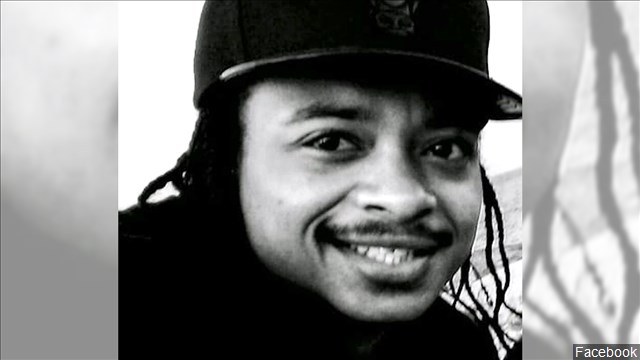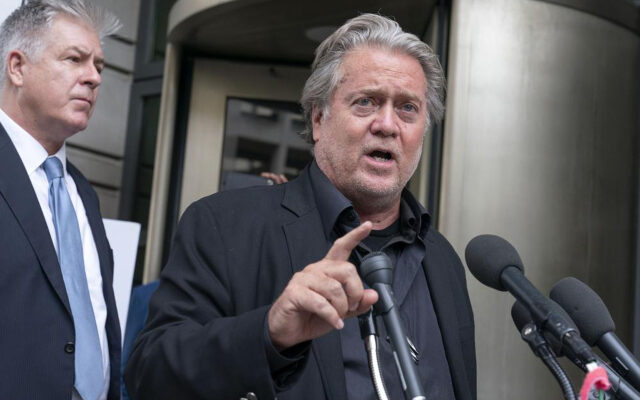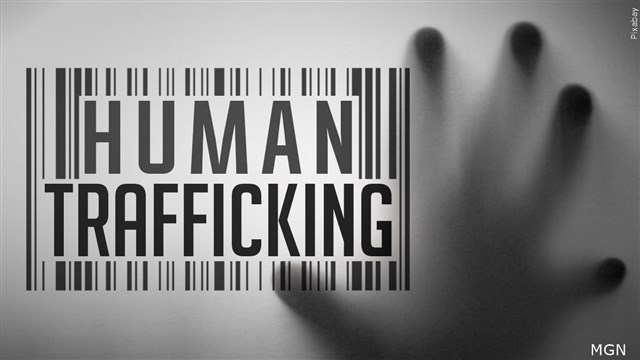No Charges Against Wisconsin Officer Who Shot Jacob Blake

KENOSHA, Wis. (AP) — A Wisconsin prosecutor announced Tuesday that he will not file criminal charges against a white police officer who shot a Black man in the back in Kenosha last summer, leaving him paralyzed and setting off sometimes violent protests in the city.
Officer Rusten Sheskey’s shooting of Jacob Blake on Aug. 23, captured on bystander video, turned the nation’s spotlight on Wisconsin during a summer marked by protests over police brutality and racism. More than 250 people were arrested in the days that followed, including 17-year-old Kyle Rittenhouse, a self-styled medic with an assault rifle who is charged in the fatal shootings of two men and the wounding of a third.
Kenosha County District Attorney Michael Graveley said Tuesday that he wouldn’t charge either Sheskey or two other officers at the scene, saying he would have to “disprove the clear expression of these officers that they had to fire a weapon to defend themselves.”
He added: “I do not believe the state … would be able to prove that the privilege of self-defense is not available.”
Graveley said he had informed Blake of the news before a news conference to announce the decision.
Ben Crump, an attorney for Blake’s family, expressed disappointment with the decision, saying it “further destroys trust in our justice system” and sends a message that it is OK for police to abuse their power. He said he will continue to move forward with a lawsuit and fight for systemic change in policing.
“We feel this decision failed not only Jacob and his family, but the community that protested and demanded justice,” Crump and his co-counsel said in a statement, adding: “We urge Americans to continue to raise their voices and demand change in peaceful and positive ways during this emotional time.”
The Blake shooting happened three months after George Floyd died while being restrained by police officers in Minneapolis, a death that was captured on bystander video and sparked outrage and protests that spread across the United States and beyond. The galvanized Black Lives Matter movement put a spotlight on inequitable policing and became a fault line in politics, with President Donald Trump criticizing protesters and aggressively pressing a law-and-order message that he sought to capitalize on in Wisconsin and other swing states.
Kenosha, a city of 100,000 on the Wisconsin-Illinois border about 60 miles north of Chicago, was braced for renewed protests ahead of the charges, with concrete barricades and metal fencing surrounded the Kenosha County Courthouse and plywood protecting many businesses. The Common Council on Monday night unanimously approved an emergency resolution giving the mayor the power to impose curfews, among other things, and Gov. Tony Evers activated 500 National Guard troops to assist.
Sheskey was among officers responding to a woman who had reported her boyfriend was not supposed to be around, and when they arrived at the scene, were told by the woman that he was “trying to take my kids, he’s trying to take my car.”
Cellphone video shows Blake walking to the driver-side door of an SUV as officers follow him with guns drawn, shouting. As Blake opens the door and leans into the SUV, Sheskey grabs his shirt from behind and opens fire.
The Kenosha police union said Blake was armed with a knife, and Sheskey ordered him several times to drop it but he would not. Sheskey’s attorney, Brendan Matthews, said Sheskey fired because Blake started turning toward the officer while holding a knife.
Gravely spent part of his presentation imagining and even acting out how a legal defense of the officers might play out in court.
Graveley said Blake was clearly armed with a knife — he displayed a blown-up photo from the scene — and said Blake had admitted having it in hand. He said Sheskey feared that Blake might take the car with children inside and committed to re-engaging with Blake after a physical struggle that included the failed use of electric stun guns, and after the officers initially backed away due to the knife.
Graveley said Sheskey shot Blake after Blake made a motion toward him with the knife.
The officers were not equipped with body cameras.
Not charging the officer “continues the cycle of enabling police violence and evading accountability when they seriously injure and harm a Black person,” said Chris Ott, executive director of the ACLU of Wisconsin. “Based on the video footage of the incident, it remains hard to see any reason to shoot Mr. Blake in the back repeatedly. But, as we’ve seen so many times before, the police in this case were held to a different standard of responsibility than the rest of us.”
“I wish I could say that I’m shocked,” tweeted Wisconsin Lt. Gov. Mandela Barnes, who is Black. “It’s another instance in a string of misapplications of justice.”
Sheskey, 31, has been the subject of five internal investigations since he joined the Kenosha department in 2013, including three reprimands for crashing his squad car three times over three years. He has also earned 16 awards, letters or formal commendations, his personnel file shows.
The state Department of Justice investigated the shooting under a state law that requires outside agencies to investigate all officer-involved incidents. The department asked former Madison Police Chief Noble Wray, who is Black, to review its findings after Graveley asked for an outside expert to review the investigation.
Rittenhouse, who was among armed people who took to Kenosha streets during the violence and said he was there to help protect businesses, faces multiple charges including intentional homicide. Bystander video showed Rittenhouse shooting Joseph Rosenbaum and Anthony Huber and wounding a third man. Rittenhouse, who is white, has claimed the three men attacked him and he fired in self-defense. Conservatives across the country have been raising money for his legal team. Rittenhouse was 17 at the time of the shooting.
Rittenhouse pleaded not guilty to all charges at a hearing Tuesday.
Prosecutors dropped a sexual assault charge against Blake in November as part of deal in which he pleaded guilty to two misdemeanor counts of disorderly conduct. He was sentenced to two years’ probation.



